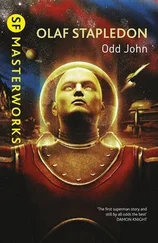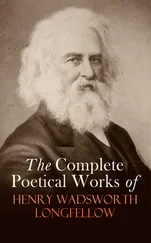Olaf Stapledon - The Complete Sci-Fi Works of Olaf Stapledon
Здесь есть возможность читать онлайн «Olaf Stapledon - The Complete Sci-Fi Works of Olaf Stapledon» — ознакомительный отрывок электронной книги совершенно бесплатно, а после прочтения отрывка купить полную версию. В некоторых случаях можно слушать аудио, скачать через торрент в формате fb2 и присутствует краткое содержание. Жанр: unrecognised, на английском языке. Описание произведения, (предисловие) а так же отзывы посетителей доступны на портале библиотеки ЛибКат.
- Название:The Complete Sci-Fi Works of Olaf Stapledon
- Автор:
- Жанр:
- Год:неизвестен
- ISBN:нет данных
- Рейтинг книги:5 / 5. Голосов: 1
-
Избранное:Добавить в избранное
- Отзывы:
-
Ваша оценка:
- 100
- 1
- 2
- 3
- 4
- 5
The Complete Sci-Fi Works of Olaf Stapledon: краткое содержание, описание и аннотация
Предлагаем к чтению аннотацию, описание, краткое содержание или предисловие (зависит от того, что написал сам автор книги «The Complete Sci-Fi Works of Olaf Stapledon»). Если вы не нашли необходимую информацию о книге — напишите в комментариях, мы постараемся отыскать её.
Novels:
Last and First Men: A Story of the Near and Far Future
Last Men in London
Odd John: A Story Between Jest and Earnest
Star Maker
Darkness and the Light
Sirius: A Fantasy of Love and Discord
Death into Life
Short Stories:
The Flames (1947)
The Seed and the Flower
The Road to the Aide Post
A Modern Magician
East is West
A World of Sounds
Arms Out of Hand
The Complete Sci-Fi Works of Olaf Stapledon — читать онлайн ознакомительный отрывок
Ниже представлен текст книги, разбитый по страницам. Система сохранения места последней прочитанной страницы, позволяет с удобством читать онлайн бесплатно книгу «The Complete Sci-Fi Works of Olaf Stapledon», без необходимости каждый раз заново искать на чём Вы остановились. Поставьте закладку, и сможете в любой момент перейти на страницу, на которой закончили чтение.
Интервал:
Закладка:
How from this pair of individuals the new population gradually arose; how at first it was earnestly fostered by its creators; how it subsequently asserted its independence and took control of its own destiny; how the Great Brains failed piteously to understand and sympathize with the mentality of their creatures, and tried to tyrannize over them; how for a while the planet was divided into two mutually intolerant communities, and was at last drenched with man’s blood, until the human automata were exterminated, the Great Brains starved or blown to pieces, and the Fifth Men themselves decimated; how, as a result of these events, a dense fog of barbarism settled once more upon the planet, so that the Fifth Men, like so many other races, had after all to start rebuilding civilization and culture from its very foundations; how all these things befell we must not in detail observe.
4. THE CULTURE OF THE FIFTH MEN
Table of Contents
It is not possible to recount the stages by which the Fifth Men advanced toward their greatest civilization and culture; for it is that fully developed culture itself which concerns us. And even of their highest achievement, which persisted for so many millions of years, I can say but little, not merely because I must hasten to the end of my story, but also because so much of that achievement lies wholly beyond the comprehension of those for whom this book is intended. For I have at last reached that period in the history of man when he first began to reorganize his whole mentality to cope with matters whose very existence had been hitherto almost completely hidden from him. The old aims persist, and are progressively realized as never before; but also they become increasingly subordinate to the requirements of new aims which are more and more insistently forced upon him by his deepening experience. Just as the interests and ideals of the First Men lie beyond the grasp of their ape contemporaries, so the interests and ideals of the Fifth Men in their full development lie beyond the grasp of the First Men. On the other hand, just as, in the life of primitive man, there is much which would be meaningful even to the ape, so in the life of the Fifth Men much remains which is meaningful even to the First Men.
Conceive a world-society developed materially far beyond the wildest dreams of America. Unlimited power, derived partly from the artificial disintegration of atoms, partly from the actual annihilation of matter through the union of electrons and protons to form radiation, completely abolished the whole grotesque burden of drudgery which hitherto had seemed the inescapable price of civilization, nay of life itself. The vast economic routine of the world-community was carried on by the mere touching of appropriate buttons. Transport, mining, manufacture, and even agriculture, were performed in this manner. And indeed in most cases the systematic coordination of these activities was itself the work of self-regulating machinery. Thus, not only was there no longer need for any human beings to spend their lives in unskilled monotonous labour, but further, much that earlier races would have regarded as highly skilled though stereotyped work was now carried on by machinery. Only the pioneering of industry, the endless exhilarating research, invention, design, and reorganization, which is incurred by an ever-changing society, still engaged the minds of men and women. And though this work was of course immense, it could not occupy the whole attention of a great world-community. Thus very much of the energy of the race was free to occupy itself with other no less difficult and exacting matters, or to seek recreation in its many admirable sports and arts. Materially every individual was a multi-millionaire, in that he had at his beck and call a great diversity of powerful mechanisms; but also he was a penniless friar, for he had no vestige of economic control over any other human being. He could fly through the upper air to the ends of the earth in an hour, or hang idle among the clouds all day long. His flying machine was no cumbersome aeroplane, but either a wingless aerial boat, or a mere suit of overalls in which he could disport himself with the freedom of a bird. Not only in the air, but in the sea also, he was free. He could stroll about the ocean bed, or gambol with the deep-sea fishes. And for habitation he could make his home, as he willed, either in a shack in the wilderness or in one of the great pylons which dwarfed the architecture even of the American age. He could possess this huge palace in loneliness and fill it with his possessions, to be automatically cared for without human service; or he could join with others and create a hive of social life. All these amenities he took for granted as the savage takes for granted the air which he breathes. And because they were as universally available as air, no one craved them in excess, and no one grudged another the use of them.
Yet the population of the earth was now very numerous. Some ten thousand million persons had their homes in the snow-capped pylons which covered the continents with an open forest of architecture. Between these great obelisks lay corn-land, park, and wilderness. For there were very many areas of hill-country and forest which were preserved as playgrounds. And indeed one whole continent, stretching from the Tropical to the Arctic, was kept as nearly as possible in its natural state. This region was chosen mainly for its mountains; for since most of the Alpine tracts had by now been worn into insignificance by water and frost, mountains were much prized. Into this Wild Continent individuals of all ages repaired to spend many years at a time in living the life of primitive man without any aid whatever for civilization. For it was recognized that a highly sophisticated race, devoted almost wholly to art and science, must take special measures to preserve its contact with the primitive. Thus in the Wild Continent was to be found at any time a sparse population of ‘savages’, armed with flint and bone, or more rarely with iron, which they or their friends had wrested from the earth. These voluntary primitives were intent chiefly upon hunting and simple agriculture. Their scanty leisure was devoted to art, and meditation, and to savouring fully all the primeval human values. Indeed it was a hard life and a dangerous one that these intellectuals periodically imposed on themselves. And though of course they had zest in it, they often dreaded its hardship and the uncertainty that they would ever return from it. For the danger was very real. The Fifth Men had compensated for the Fourth Men’s foolish destruction of the animals by creating a whole system of new types, which they set at large in the Wild Continent; and some of these creatures were extremely formidable carnivora, which man himself, armed only with primitive weapons, had very good reason to fear. In the Wild Continent there was inevitably a high death-rate. Many promising lives were tragically cut short. But it was recognized that from the point of view of the race this sacrifice was worth while, for the spiritual effects of the institution of periodic savagery were very real. Beings whose natural span was three thousand years, given over almost wholly to civilized pursuits, were greatly invigorated and enlightened by an occasional decade in the wild.
The culture of the Fifth Men was influenced in many respects by their ‘telepathic’ communication with one another. The obvious advantages of this capacity were now secured without its dangers. Each individual could isolate himself at will from the radiation of his fellows, either wholly or in respect of particular elements of his mental process; and thus he was in no danger of losing his individuality. But, on the other hand, he was immeasurably more able to participate in the experience of others than were beings for whom the only possible communication was symbolic. The result was that, though conflict of wills was still possible, it was far more easily resolved by mutual understanding than had ever been the case in earlier species. Thus there were no lasting and no radical conflicts, either of thought or desire. It was universally recognized that every discrepancy of opinion and of aim could be abolished by telepathic discussion. Sometimes the process would be easy and rapid; sometimes it could not be achieved without a patient and detailed ‘laying of mind to mind’, so as to bring to light the point where the difference originated.
Читать дальшеИнтервал:
Закладка:
Похожие книги на «The Complete Sci-Fi Works of Olaf Stapledon»
Представляем Вашему вниманию похожие книги на «The Complete Sci-Fi Works of Olaf Stapledon» списком для выбора. Мы отобрали схожую по названию и смыслу литературу в надежде предоставить читателям больше вариантов отыскать новые, интересные, ещё непрочитанные произведения.
Обсуждение, отзывы о книге «The Complete Sci-Fi Works of Olaf Stapledon» и просто собственные мнения читателей. Оставьте ваши комментарии, напишите, что Вы думаете о произведении, его смысле или главных героях. Укажите что конкретно понравилось, а что нет, и почему Вы так считаете.












